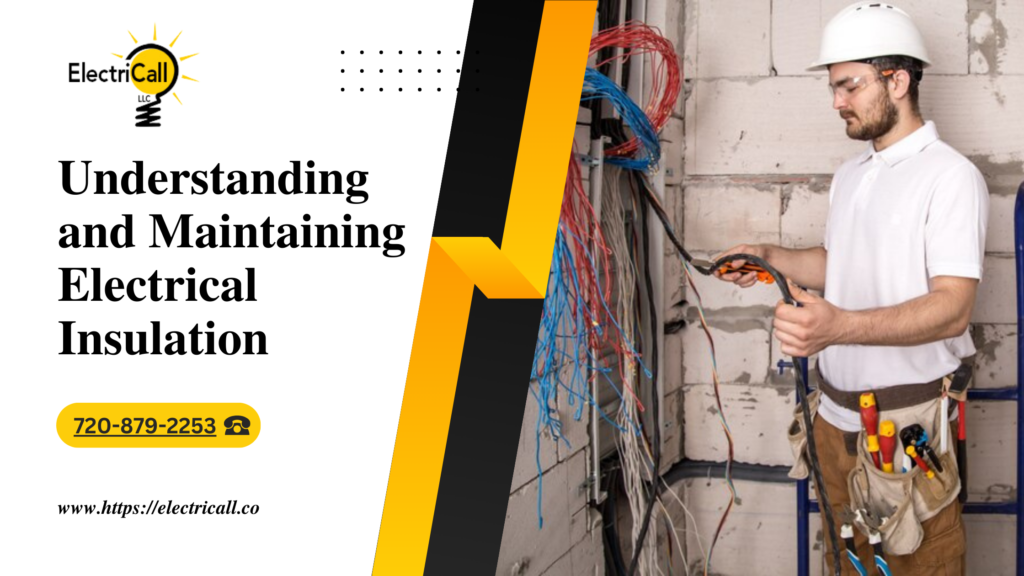
Beautifying a residential space starts with understanding your best options and how best you can execute your designs. Many homeowners think electric installations should not be a major consideration as long as they have power where and when they want it. However, you should be able to incorporate ideal designs that enhance your home’s aesthetics and functionality. This article elaborates on how you can go about residential electrical designs to ensure you understand what they entail and their best approach.
What Is Residential Electrical Design?
Electrical design refers to how the contractor plans, creates, tests, and supervises the installation and execution of electrical equipment or systems. What an electrician deals with during this planning and execution include:
● Power systems.
● Lighting equipment.
● Life safety systems.
● Fire safety equipment.
● Power distribution.
● Electronics.
Residential electric designing projects can be tricky and overwhelming, especially if you lack the appropriate basic knowledge. This is why many residential property owners search for a local residential electrician to increase their chances of getting the best services for their homes.
What Is Residential Electrical Design Aesthetic?
Aesthetics refers to the beauty of something, and electrical designs aren’t an exception. In many cases, a reliable Arvada electrician will install electric systems and equipment that significantly contribute to the structure’s pleasing qualities. You can achieve that by following these tips:
● Installing beautiful light bulbs.
● Matching your electric fittings with your home’s interior design.
● Aesthetically positioning the outlets.
● Working with an experienced electrician in Denver, CO.
How To Achieve Residential Electric Design Aesthetics
Beautifying the electrical connections in your home takes more effort than many homeowners realize. You must take your time, consider the right factors, and set a budget, taking into account the expense of hiring a local electrician in Arvada. The following points will help you achieve the beauty you desire from your electric design:
Make the Design User-Friendly
There’s so much that goes into electrical design aesthetics besides what your eyes see. You should consider how easy your systems are to use without causing any trouble for your family members, so before indulging in any electrical design, you must factor in the users’ tastes, preferences, and needs.
Considering such factors makes it easier to design electrical systems that meet user requirements, and good research should be at your fingertips if you want a design that meets aesthetic standards.
Leverage the Available Designing Tools
Modern technology has taken a drift in a positive direction, primarily when you consider the advancements it has experienced over the last two decades, and the electrical industry has its own application when it comes to achieving aesthetically appealing designs. You can leverage several designing tools to ensure you connect your systems and equipment in a way that satisfies your spirit.
Prototypes, sketches, frames, and simulations are among the first tools to consider when dealing with residential electrical design, but you should understand that these tools require adequate knowledge and expertise. To help with this, it’s advisable to consider working with one of the electrical companies near Denver.
Embrace Regular Design Updates
Electrical designs change with time. As a residential property owner, you can check out new and upcoming designs to keep up with what’s trending. Innovators and creators develop new designs daily to ensure they offer the best products to their clients. As such, the chandeliers used in residences ten years ago might not be as appealing as those on the current market.
Regular design updates and improvements are the best tips for achieving electric design aesthetics in your home, and a professional, reliable, and experienced Arvada electrician can guide you better on what’s trending and what works best on your property. Fortunately, finding such individuals isn’t complex in the modern world, considering that the number of reliable electricians has skyrocketed.
Understand Electrical Design Standards
Like any other undertaking, electrical designs also come with their standards. They include regulatory, industry, and accessibility standards that offer clear guidelines, best practices, and specifications that guarantee electrical designs that are beautiful, inclusive, safe, and compliant.
WCAG and ADA are accessibility standards that guide you to designing accessible, enjoyable, and usable electrical systems for all users regardless of their disabilities, tastes, preferences, and abilities. IEEE, ANSI, and IEC represent industry standards to ensure residential electrical designers achieve quality-assured, compatible, and interoperable designs. Finally, FCC, UL, and CE are regulatory standards that push electricians to achieve ethical, eco-friendly, and legal residential electrical designs. adhering to these standards is a sure way to achieve an aesthetically appealing electrical design within a residential premise.
Definition Of Residential Electrical Design Functionality
Functionality differs from aesthetics because something may appear extraordinarily beautiful but cannot perform as intended. For instance, a modern power outlet may look appealing to the eye, but it does not give out the energy you need to power your HVAC unit. That’s why you must exercise due diligence when buying such products to ensure you have one that functions optimally. Many homeowners worldwide regret their decisions simply because they didn’t take the time to understand the best way to confirm a product’s functionality.
How To Achieve A Residential Electrical Design Functionality
There are different ways to ensure the design you incorporate in your residential property hits optimum functionality. Nevertheless, this section will address the most important of these tips and tricks to make it clear for all homeowners.
Work With The Experts
Professional and reliable electricians are your best shot at achieving a functional design as they have handled several projects similar to yours, meaning they know how to optimize functionality when designing and installing electrical systems. This is why you might have realized that searches, such as ‘residential electrician near me’, have gained traction in the current generation.
Have A Complete System Reevaluation
Electrical systems are prone to errors, failures, and breaks, and working on an individual part is a common mistake when repairing an electrical system, which should not be the case. Consult an expert to check where the issue lies and handle it appropriately. Many electricians take no shortcuts in handling the individual part in question, especially for time, budget, and workload.
Use 3D Models
Designing in 3D has several benefits, including offering a detailed installation guide and making it easier for you to understand the design. Many electricians have adopted this technology to find the balance between practical and approachable designs, boosting an electrical system’s functionality. 3D models have other advantages, including:
● Transparency – what you see is what you get, and there are no mishaps to cause hiccups in the design installation.
● Fail-safe – the involved team collaborates in the design to minimize errors.
● Collaboration – 3D models do not include complex blueprints or abstracts, making it easier to understand electrical schematics.
Conduct Detailed Due Diligence
You should never take residential electrical designing projects lightly. You must be willing to take your time to understand your options before indulging in any purchases or installations. The internet can play a material role in helping you select designs and systems with optimum functionality. Alternatively, you can get referrals from those close to you who have mastered creating functional electrical designs. This is also the best point to consult the experts, especially those who have been in the electrical industry for some time.
Design To Specifications
Many clients don’t understand how this works because they may lack the time or knowledge for residential electrical design projects. Unfortunately, many electrical design teams want to take the easy way out by designing and creating specifications simultaneously. This shouldn’t be the case. The best way to achieve an optimally functional design is by first creating specifications and using them as the design basis.
Final Thought
Professional electrical designs have taken root in many residential properties, and the number of professionals who can successfully handle such projects has also increased significantly. Nevertheless, the point shouldn’t only revolve around having an electrical system in your home. You must understand how to achieve both an aesthetic and functional design. To help you retain the guidance provided in this article, ensure you read, reread and bookmark it to ensure you know exactly what to consider when designing electrical applications.



